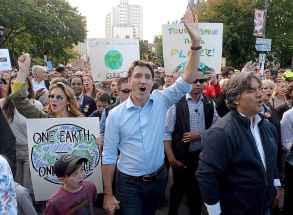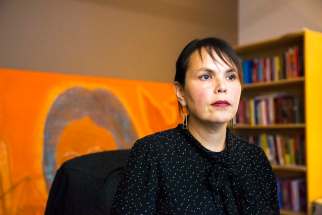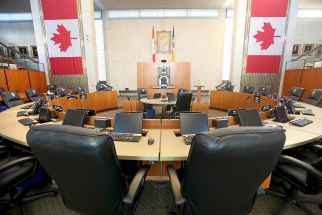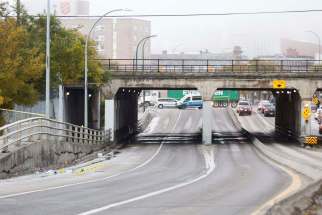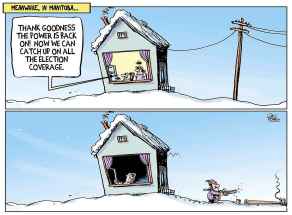No easy way out for climate change-concerned voters
Read this article for free:
or
Already have an account? Log in here »
To continue reading, please subscribe:
Monthly Digital Subscription
$0 for the first 4 weeks*
- Enjoy unlimited reading on winnipegfreepress.com
- Read the E-Edition, our digital replica newspaper
- Access News Break, our award-winning app
- Play interactive puzzles
*No charge for 4 weeks then price increases to the regular rate of $19.00 plus GST every four weeks. Offer available to new and qualified returning subscribers only. Cancel any time.
Monthly Digital Subscription
$4.75/week*
- Enjoy unlimited reading on winnipegfreepress.com
- Read the E-Edition, our digital replica newspaper
- Access News Break, our award-winning app
- Play interactive puzzles
*Billed as $19 plus GST every four weeks. Cancel any time.
To continue reading, please subscribe:
Add Free Press access to your Brandon Sun subscription for only an additional
$1 for the first 4 weeks*
*Your next subscription payment will increase by $1.00 and you will be charged $16.99 plus GST for four weeks. After four weeks, your payment will increase to $23.99 plus GST every four weeks.
Read unlimited articles for free today:
or
Already have an account? Log in here »
Hey there, time traveller!
This article was published 18/10/2019 (2242 days ago), so information in it may no longer be current.
If the 2019 federal election has shown us anything, it is there is still a substantial gap between the reality of climate change and what politicians and voters are prepared to do about it.
That is not to say there hasn’t been progress. Despite efforts to distract voters with character assassination and awkward efforts to buy support with old-fashioned tax cuts and spending pledges, climate change has become the top issue. And for good reason.
Putting aside the torrent of denier propaganda, there is more than enough evidence weather extremes (warmer summers, colder winters, more severe storms and longer-lasting droughts) are being caused by a transitioning climate, itself caused by human activity. In this current campaign, the parties and leaders have demonstrated they understand the threat is real. To some extent.
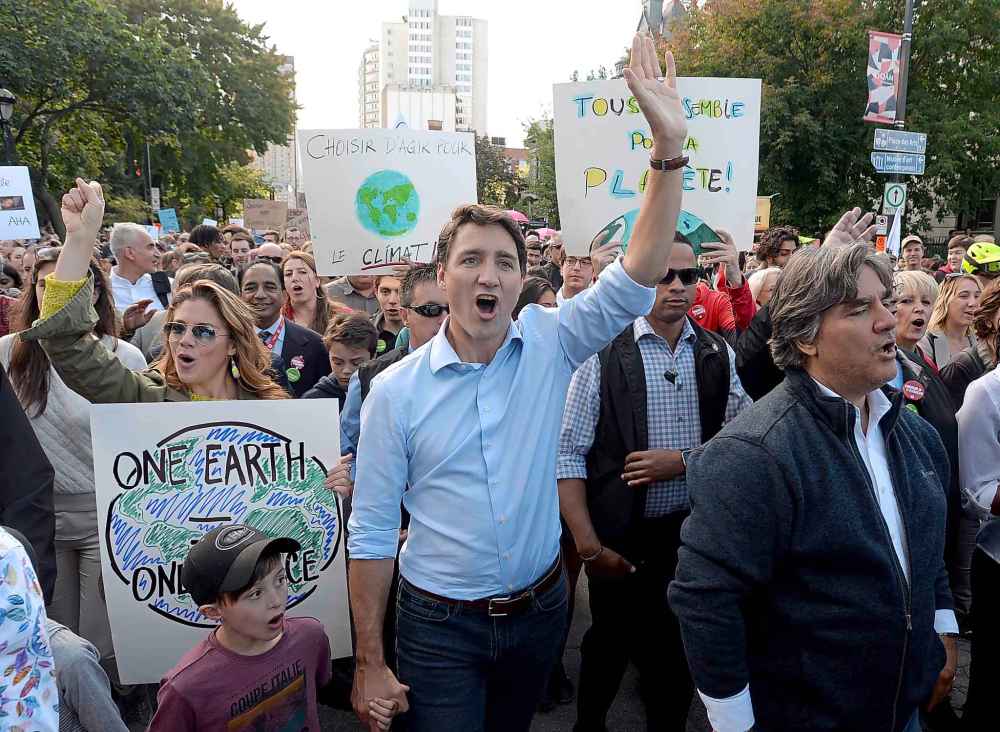
Liberal Leader Justin Trudeau continues to be trapped in a policy limbo where he is trying to placate both the oil- and gas-producing provinces and Canadians who want direct action on climate change. Nothing he has said or done has shown he is politically capable of finding a more direct way to combat the problem.
Conservative Leader Andrew Scheer continues to try and tell people the biggest issue is "affordability." That is akin to offering to put new carpeting in a house that’s almost burned to the ground.
The Greens and the NDP are more bold in their visions to address climate change, but the perennial third- and fourth-place parties are only emboldened by the remoteness of electoral success.
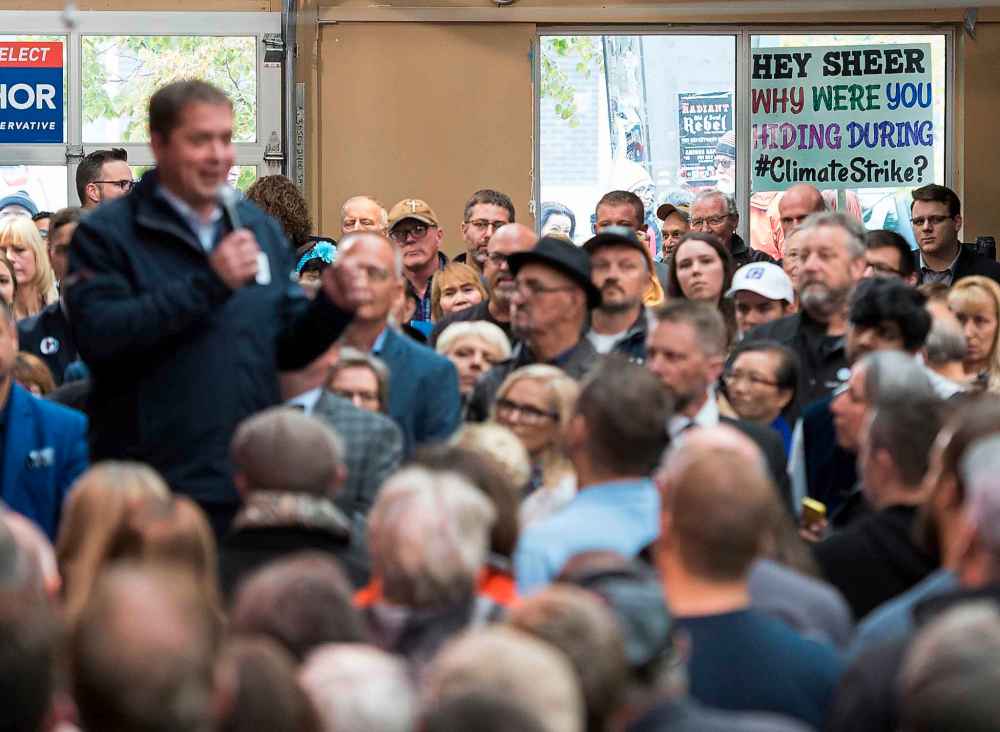
Regardless of the depth or quality of the platforms, there is little doubt now Canada’s politicians realize climate change is the single-greatest challenge facing the country. Not since the last world war has there been a single issue that extends its shadows across all areas of government.
From health care to fiscal policy to anti-poverty initiatives to labour markets to justice to public safety to our relationship with Indigenous peoples, climate change is the great X-factor — the common thread that will, in one way or the other, determine the future of the world.
It’s easy to blame the politicians for the gap between what we should be doing and what they are prepared to offer. The real culprits in this equation are the issue itself (which does not fit well with electoral cycles and political reality) and voters (who are still looking for easy and painless ways to address the problem).
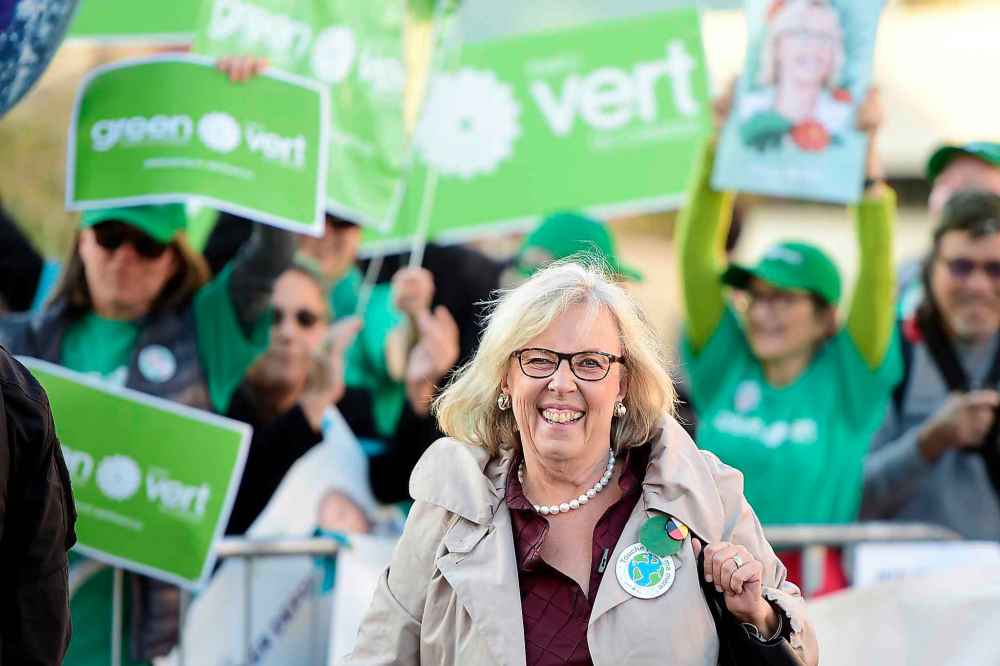
John Iacozza, director of the Centre for Earth Observation Science at the University of Manitoba, has long deliberated on the gap between public policy and political action. Although he acknowledges climate change has undoubtedly become the No. 1 issue, Iacozza continues to express concern about whether politicians and government are equipped to find solutions.
Can’t see the player below? Listen to Not for Attribution episode 8: The Climate Convo on our website.
In the most recent episode of Not For Attribution, the Winnipeg Free Press podcast on politics and public policy, Iacozza said he was encouraged after the Liberals were elected in 2015. But over their first term, he grew concerned about the lack of progress in addressing the root causes of climate change because politicians couldn’t find an easy or painless option. When you look at the science, Iacozza said, there really is no painless way.
"We need a whole different mindset when it comes to climate change," Iacozza told Not For Attribution. "I think that’s the problem with politics and climate change. There’s not a quick fix, there’s no real easy solutions."
The issue seems to weigh on the electorate. Consistently, from pollster to pollster, a growing constituency of Canadians — from more than one-third to about half, depending on the poll — believes our very survival is threatened by climate change. An even larger majority (some polls have it as big as 75 per cent of respondents) are willing to change the way they live to address the problem.
However, when it comes to specific measures — particularly those that might require increased costs — support begins to wain.

Thus, we are left with a true moral dilemma: our collective insistence on having our climate change cake and eating it, too, discourages politicians from taking a more pointed approach — which means we get half-measures.
We are, in almost every conceivable way, our own worst enemies.
For those Canadians willing to accept some pain to get the gain on addressing climate change, the prospect of a minority government (particularly one propped up by the Greens or NDP) has many observers in a more optimistic mood.
But even a minority government forced to be more aggressive on climate change will have to wrestle with an electorate that is all for solutions, as long as they don’t have to give anything up.
The future of Canadian climate change policy may be dependant on a seismic shift in the mindset of the electorate that must precede a shift in public policy.
Monday’s general election will be our first chance to see whether we’re still looking for the easy way out.
dan.lett@freepress.mb.ca

Born and raised in and around Toronto, Dan Lett came to Winnipeg in 1986, less than a year out of journalism school with a lifelong dream to be a newspaper reporter.
Our newsroom depends on a growing audience of readers to power our journalism. If you are not a paid reader, please consider becoming a subscriber.
Our newsroom depends on its audience of readers to power our journalism. Thank you for your support.


